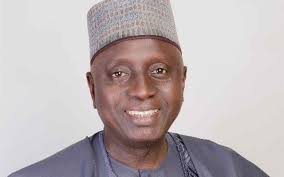The Chairman said that the deliberations on the state of the country's health through legislative summit could not be more auspicious than now, following the report from the National Demographic and Health Survey (NDHS), which shows that more children died in five years preceding the 2018 survey.
“The suboptimal performance of Nigeria despite the investment from the government, donor agencies and private sector spurred the organizers of this summit to appraise the efficiency of spending in the sector.
“The lawmakers are saddled with the responsibility of raising the accountability bar towards ensuring enhanced efficiency.
“The theme: ‘efficiency and effectiveness in Nigeria health sector and the role of legislators in a decentralized democracy’ is apt,” he said.
He added that to reposition Nigeria's health system landscape and set the country on the trajectory of Universal Health Coverage (UHC), the country does not only need to spend more on health but also need to spend better.
Oloriegbe said that the lawmakers have huge task towards ensuring the success of the existing policy thrust on health such as Basic Health Care Provision Fund (BHCPF), health insurance decentralization that ushered in State Social Health Insurance Scheme, Primary Health Care (PHC) under one roof, Public-Private Partnerships (PPPs).
Among others, he said important policy thrust must be optimally implemented in such a way that it serves the interest of Nigerians, especially the poor and vulnerable in the country.
He said that at the end of the summit, the legislators hoped to reach a consensus on a framework for the national Legislator Health Agenda strategic plan to guide the activities of legislators for the next four years.
Sen. Lanre Tejuoso, former Chairman, Senate Committee in the eighth assembly, said that the main problem in Nigeria’s healthcare was financing.
“If we don’t get adequate financing, there is no way we can move forward,” he said.
Tejuoso stressed the need for the country’s lawmakers to increase their effort in oversight; not only for the money spent but also to make sure that the National Health Act was fully implemented.
Dr Chikwe Ihekweazu, Director General, The Nigeria Centre for Disease Control (NCDC), emphasized the risks and occurrence of disease outbreaks faced by states and the need for increased funding for health emergencies in the country.
According to Ihekweazu, outbreaks are equitably distributed across the country. If you think you are protected, you have to think again.
“There was no voice of opposition to the passage of the NCDC bill because we know we are all at risk.
“Our population is growing and if we do not protect our people, we will pay the price,” he said.
“We have to appropriate funds to epidemic emergencies. Whether it is Monkey Pox in Bayelsa, Meningitis in Sokoto, Lassa Fever in Ebonyi, we must be prepared,” he said.
Hon. Ekpo Ekpo Bassey, Chairman Cross River State House Committee on Health, said that the healthcare system in Nigeria was far away from the expected global standard.
Bassey identified features like lack of facilities and training and retraining of personnel.
Dr Francis Ohanyido, President West Africa Academy for Public Health, said that for many, UHC was literally a life or death issue.
Ohanyido said that individuals without health coverage face the prospect of untreated sickness and premature death.
NAN reports that the National Assembly in collaboration with the Federal Ministry of Health and development partners organized the first summit on the Legislative Network for UHC in 2017.
The summit seeks to bring together legislators from the 36 states House of Assembly, House Clerks, Chairs of Health Committee to share experience on health issues.
Source: Sun News

 Sen. Ibrahim Oloriegbe, Chairman, Senate Committee on Health, has called for adequate funding to improve health sector performance in the country. Oloriegbe made the call at the third Annual Legislative Summit on Health in Abuja.
Sen. Ibrahim Oloriegbe, Chairman, Senate Committee on Health, has called for adequate funding to improve health sector performance in the country. Oloriegbe made the call at the third Annual Legislative Summit on Health in Abuja.




